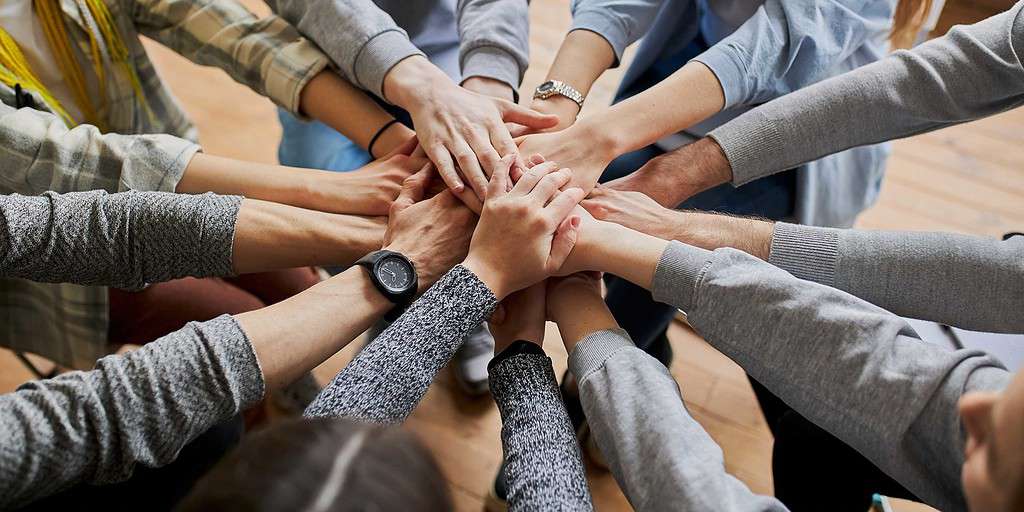Support
Support for patients and caregivers is essential for weathering the ups and downs of life with mitochondrialRelated to the mitochondria. disease. Learning how best to access that support is essential for the prevention of Medical Child Abuse allegations.

Support is Key!
Living with a rare disease or caring for a person who suffers from one is never an easy task. Support for patients and caregivers is essential for weathering the ups and downs of life with mitochondrial disease. Learning how best to access that support, especially when caring for another person, is essential both to proper family functioning and prevention of Medical Child Abuse allegations.
Patients and their families may find resources for support in a variety of places, including in-person or over the phone. Support through the Internet or social media also may be beneficial so long as you are mindful of what is perceived as a Medical Child Abuse "red flag" in those settings.
Family and Close Friends
More often than not, one parent tends to handle most of the care taking, medical appointments, prescriptions, and insurance issues. Frequently, it is the mother who takes on these responsibilities. It is important to note, however, that mothers are far more likely to be accused of Medical Child Abuse allegations, particularly when they have been serving as the primary caregivers for their children.
To protect the mother from these types of allegations, it is important to have other family members or close friends attend appointments with the mother as well as stay with the child in the hospital. One parent should never be the only caregiver of a chronically ill child.
In all cases, the support of family or close friends can be a vital lifeline. It is important not to shut people out, but rather try to let people in even if the situation is extremely stressful and difficult.
Counseling at Hotline Support
Families dealing with complex medical problems are under a good deal of stress. It is crucial to reach out for help before the stress becomes overwhelming.
MitoAction established the Mito411 hotline to provide one-on-one support to patients and families dealing with mitochondrial disease. This volunteer hotline is available free of charge and may be reached by calling 1-888-648-6411 or emailing mito411@mitoaction.org. Learn more about Mito411.
Do not hesitate to seek family or individual counseling as well. Such counseling can be helpful, especially when you find a counselor who has specific training or background in working with families dealing with chronic illness such as mitochondrial disease, cancer, and the like. Hospital social workers are an excellent source for counselors who might be skilled in issues surrounding chronic illness and caregiver stress.
Please be aware that, when seeking help through a hotline or even through a counselor, individuals in these positions may be considered “mandated reporters” in your state. A mandated reporter is required by state law to report concerns of child abuse and neglect. If certain things you say in reaching out and seeking support are deemed to raise a concern of abuse or neglect, the person to whom you are speaking could be required to report you to the authorities. For more on the role of mandated reporters, visit the Child Welfare Information Gateway.
In-Person Support Groups
Local support groups can provide much needed interactions with others going through similar struggles and medical concerns. Some parts of the country have had Mito Patient & Family Socials, which are great opportunities to connect with other patients and caregivers. Learn more about hosting a Mito Patient & Family Social in your area. MitoAction can also connect you with a local family. To request a connection to another mito family, email info@mitoaction.org.
Virtual Support Groups
Since 2008, MitoActon has hosted Weekly Support Calls by teleconference on Fridays at noon ET (except for the first Friday of the month, which features a guest speaker for our Monthly Mito Expert Series). We encourage you to join us at anytime for a support group. All patients, family members and caregivers are welcome.
MitoAction also has a strong Facebook presence, with several regional groups as well as a nationwide closed discussion group. Many patients and caregivers use the closed MitoAction discussion group to seek advice and input from mito peers.
Another great resource for caregivers is the Caregiver Action Network, a non-profit organization dedicated to supporting all types of caregivers. Caregiver Action Network launched a special website for Rare Disease Caregivers, complete with extensive support materials and anonymous/de-identified message boards where caregivers can seek support.
If you know of any additional in-person or virtual support groups that should be added to this page, please do not hesitate to contact us!











